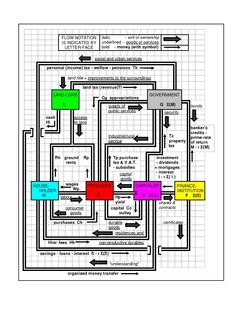Anthropology is the study of humans and human behavior and societies in the past and present. Social anthropology and cultural anthropology study the norms and values of societies. Linguistic anthropology studies how language affects social life. Biological or physical anthropology studies the biological development of humans.
Theories of political behavior, as an aspect of political science, attempt to quantify and explain the influences that define a person's political views, ideology, and levels of political participation. Broadly speaking, behavior is political whenever individuals or groups try to influence or escape the influence of others. Political behavior is the subset of human behavior that involves politics and powers. Theorists who have had an influence on this field include Karl Deutsch and Theodor Adorno.

A society is a group of individuals involved in persistent social interaction, or a large social group sharing the same geographical or social territory, typically subject to the same political authority and dominant cultural expectations. Societies are characterized by patterns of relationships between individuals who share a distinctive culture and institutions; a given society may be described as the sum total of such relationships among its constituent of members. In the social sciences, a larger society often exhibits stratification or dominance patterns in subgroups.

Private property is a legal designation for the ownership of property by non-governmental legal entities. Private property is distinguishable from public property, which is owned by a state entity; and from collective property, which is owned by a group of non-governmental entities. Private property can be either personal property or capital goods. Private property is a legal concept defined and enforced by a country's political system.

Institutions, according to Samuel P. Huntington, are "stable, valued, recurring patterns of behavior". Further, institutions can refer to mechanisms of social order, which govern the behaviour of a set of individuals within a given community. Moreover, institutions are identified with a social purpose, transcending individuals and intentions by mediating the rules that govern living behavior.. According to Geoffery M. Hodgson, it is misleading to say that an institution is a form of behavior. Instead, Hodgson states that institution are “integrated systems of rules that structure social interactions”.

An economic system is a system of production, resource allocation and distribution of goods and services within a society or a given geographic area. It includes the combination of the various institutions, agencies, entities, decision-making processes and patterns of consumption that comprise the economic structure of a given community. As such, an economic system is a type of social system. The mode of production is a related concept. All economic systems have three basic questions to ask: what to produce, how to produce and in what quantities and who receives the output of production.
Human bonding is the process of development of a close, interpersonal relationship between two or more people. It most commonly takes place between family members or friends, but can also develop among groups, such as sporting teams and whenever people spend time together. Bonding is a mutual, interactive process, and is different from simple liking. It is the process of nurturing social connection.

Onboarding, also known as organizational socialization, refers to the mechanism through which new employees acquire the necessary knowledge, skills, and behaviors in order to become effective organizational members and insiders.
Marxian class theory asserts that an individual’s position within a class hierarchy is determined by his or her role in the production process, and argues that political and ideological consciousness is determined by class position. A class is those who share common economic interests, are conscious of those interests, and engage in collective action which advances those interests. Within Marxian class theory, the structure of the production process forms the basis of class construction.

The Kaluli are a clan of non-literate indigenous peoples who live in the rain forests of the Great Papuan Plateau in Papua New Guinea. The Kaluli, who numbered approximately 2,000 people in 1987, are the most numerous and well documented by post-contact ethnographers and missionaries among the four language-clans of Bosavi kalu that together share a linguistic affiliation within the larger family of Non-Austronesian languages. Their numbers are thought to have declined precipitously following post-contact disease epidemics in the 1940s, and have not rebounded due to high infant mortality rates and periodic influenza outbreaks. The Kaluli are monolingual in their ergative language.
Claude Dubar was a French sociologist.
In economics and economic sociology, embeddedness refers to the degree to which economic activity is constrained by non-economic institutions. The term was created by economic historian Karl Polanyi as part of his substantivist approach. Polanyi argued that in non-market societies there are no pure economic institutions to which formal economic models can be applied. In these cases economic activities such as "provisioning" are "embedded" in non-economic kinship, religious and political institutions. In market societies, in contrast, economic activities have been rationalized, and economic action is "disembedded" from society and able to follow its own distinctive logic, captured in economic modeling. Polanyi's ideas were widely adopted and discussed in anthropology in what has been called "The formalist vs substantivist debate". Subsequently, the term "embeddedness" was further developed by economic sociologist Mark Granovetter, who argued that even in market societies, economic activity is not as disembedded from society as economic models would suggest.

Relations of production is a concept frequently used by Karl Marx and Friedrich Engels in their theory of historical materialism and in Das Kapital. It is first explicitly used in Marx's published book The Poverty of Philosophy, although Marx and Engels had already defined the term in The German Ideology.

In Marxist theory, socialism refers to a specific historical phase of economic development and its corresponding set of social relations that supersede capitalism in the schema of historical materialism. The Marxist definition of socialism is a mode of production where the sole criterion for production is use-value and therefore the law of value no longer directs economic activity. Marxist production for use is coordinated through conscious economic planning, while distribution of economic output is based on the principle of to each according to his contribution. The social relations of socialism are characterized by the working class effectively owning the means of production and the means of their livelihood, either through cooperative enterprises or by public ownership or private artisanal tools and self-management, so that the social surplus accrues to the working class and society as a whole.
Social ownership is any of various forms of ownership for the means of production in socialist economic systems, encompassing public ownership, employee ownership, cooperative ownership, citizen ownership of equity, common ownership and collective ownership. Historically social ownership implied that capital and factor markets would cease to exist under the assumption that market exchanges within the production process would be made redundant if capital goods were owned by a single entity or network of entities representing society, but the articulation of models of market socialism where factor markets are utilized for allocating capital goods between socially owned enterprises broadened the definition to include autonomous entities within a market economy. Social ownership of the means of production is the common defining characteristic of all the various forms of socialism.

Legal socialization is the process through which, individuals acquire attitudes and beliefs about the law, legal authorities, and legal institutions. This occurs through individuals' interactions, both personal and vicarious, with police, courts, and other legal actors. To date, most of what is known about legal socialization comes from studies of individual differences among adults in their perceived legitimacy of law and legal institutions, and in their cynicism about the law and its underlying norms. adults' attitudes about the legitimacy of law are directly tied to individuals' compliance with the law and cooperation with legal authorities.







